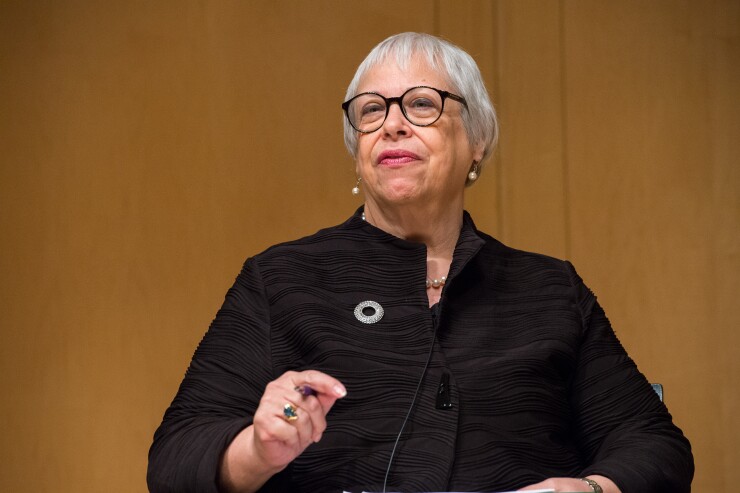With the compliance deadline for Regulation Best Interest set for the end of the month, the champion of the now-defunct fiduciary rule questioned the SEC’s ability to address burgeoning and
“Without seriously focusing on these newly emerging sources of conflict, the SEC will never be able to make any headway in protecting investors in a post-Reg BI world,” Phyllis Borzi said, participating in an Institute for the Fiduciary Standard
Problems with revenue sharing emerged as the industry began to implement the fiduciary rule, which Borzi shepherded during her time as assistant secretary for Employee Benefits Security at the Labor Department during the Obama Administration.
“One of the things that I did learn from the work that my staff did at the Department of Labor is how really difficult it is to find these things — to identify them,” Borzi said.
In response to the fiduciary rule, which was
But less-discernable means of compensating brokerages for distribution surfaced, according to Borzi, who referenced a November Morningstar

Indeed, there is no standard form of disclosure for these
Revenue sharing is often used to pay brokerages or brokers for fund distribution. While clients don’t pay for revenue sharing directly, they may be paying for it indirectly — the payments come from profits derived from management fees and aren’t disclosed in the fund’s expense ratio.
Not all forms of revenue sharing pose a conflict, but problematic forms of the practice are “extensive and opaque and difficult to find and quantify,” Borzi said, asserting that the SEC has “historically failed to pursue” them.
“They look at whether or not these revenue sharing payments are disclosed, rather than what they actually do or trying to regulate the actual payments,” she said.
For example, in 2019, the SEC
But disclosure isn’t sufficient, especially when clients — or even brokers — don’t understand what they are, according to Deborah Bosley, owner of the Plain Language Group, who also participated in the webinar.
When Bosley ran the conflict-of-interest section of Ameriprise and Commonwealth’s part 2 brochure of their ADV through readability tests, she said they compared to the language used in the Harvard Law Review.
Bosley continued: “I don't know about you, but even with a Ph.D., I probably would get pretty lost in the Harvard Law Review,” she said.
Borzi said the SEC first needs to discern which kinds of payments fall under the “general bucket of revenue sharing” in order to decipher which pose conflicts.
“I don't know that investors can even figure it out,” she said. “Hopefully the experienced regulators at the SEC might be able to do something.”
An SEC spokeswoman did not respond to a request for comment on how the regulator intends to address revenue sharing under Reg BI.






